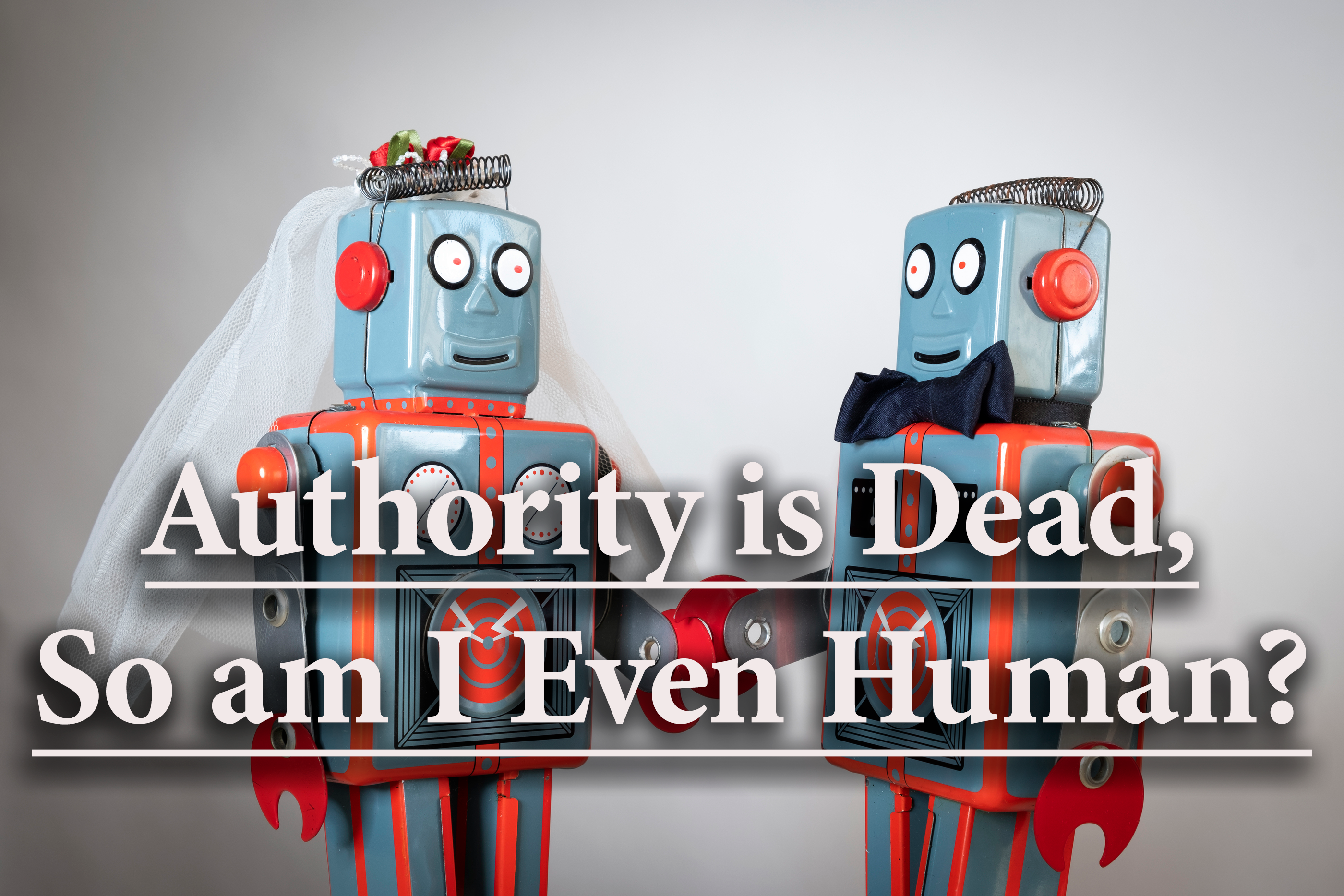
As an undergraduate student I was absolutely impressed by a number of my professors, but one in particular stuck out to me. My friend and I had the class together and I recall us both feeling blown away by the professor’s knowledge, quick wit, and overall demeanor. Even the tone of his voice impressed us. We walked out of the class utterly committed to taking every class we could with him. We even started talking like him. It wasn’t long before my friend told a few other people that I had a “man crush”, which was incredibly embarrassing and I denied it, but it probably was not far off the mark.
About a year later I had the opportunity to take a class with this same professor and it was going to be a one-on-one course. I thought for sure the class would be one of my most fruitful. Instead he gave me a book, and told me to write a few pages of response to each chapter. We almost never met to discuss what I had accomplished, and the pages I emailed to him were never commented on. I received a nice A+ at the end of the semester, but never any meaningful feedback or interaction. I certainly learned a lot, both about the course, and about the professor’s inability to be punctual and to respond to emails in a timely manner. The course was effectively a self-directed study, and I was wildly disappointed about the whole experience. Eventually, he apologized, and told me that he felt “sheepish” about how uninvolved he had been. In that moment his physical posture fit the word perfectly and seared itself into my brain. I’ve now incorporated the word “sheepish” into my regular vernacular. At the end of the class the spell was broken. He was only a human. A smart, well-spoken human who was probably overworked, and had overcommitted. I still think he’s a very good man and a very good teacher, but I’ll never idolize him in the way I did. It represents one of those powerful moments that makes a substantial change in how you view the world. I no longer believe people are who they appear to be at a first glance, and I’m pretty suspicious of certain personality archetypes, the self-assured, confident, has-it-all-together types. I don’t buy it. I’ve seen too many of these people fail to live up to the person they pretended to be. And as the preeminent example to myself, I know I’m not everything I pretend to be.
Of course, I’m not alone in either of those sentiments.
From religion to academia, from politics to business, authority is in question everywhere. At least, that’s what I would have said if I were a writer 100 years ago. Now, there is no longer a question. Huge swaths of people, particularly western people, the idea that truth is vested in particular positions of authority (like the Pope, or a President, or even a professor), is frequently disregarded. The idea that positions of authority say almost anything about competence, merit, or skill, is equally disregarded in all but the most rigorously meritorious institutions (like the United States military). Although even here we find events like the fall of Afghanistan to the Taliban in 2021 to challenge that, with the unbelievable disparity between the infamous 6 month prediction by U.S. military intelligence of Afghanistan’s fall, to the mere hours it actually took.
We might well wonder when this idea of authority started it’s precipitous downward fall. The 20th century seems like a good bet. If I’ve read my history right, there was certainly a whole lot more faith in the American political system then, a kind of faith that must have existed precisely because so many point to Water-gate as (and pardon the pun here) a water shed moment of political distrust, or unfaith. Water-gate aside, the First World War with all of its unprecedent horror, absolutely devastated Europe and all notions of idealism, both in the divine right to rule of Kings, or in the authority of countries to send men to war. The Second World War was far more deadly, but I’d argue the First World War obliterated so many core cultural beliefs and institutions that the world that emerged from those muddy trenches was almost unrecognizable. No one could pretend anymore that war was virtuous, and the Kings, Bishops, and school teachers who sold it as such had their credibility taken with the lives of their men.
British war correspondent and prolific journalist Phillip Gibbs wrote in his book Now It Can Be Told, that not only men had died in the no-man’s land of the First World War, but an entire worldview was also shattered there.
They had been taught to believe that the whole object of life was to reach out to beauty and love. And that mankind in its progress to perfection had killed the beast instinct: cruelty, blood-lust, the primitive, savage laws of survival by tooth and claw and club and axe. All poetry, all art, all religion had preached this gospel and this promise. Now that ideal had broken like a china vase, dashed to hard ground. The contrast between that and this was devastating.[1]
While it was quite stark, skepticism of authority wasn’t new in the 20th century, nor was it particularly new when many folks fled the tyrant King in Britain for the American colonies in the 17th and 18th centuries. It wasn’t new, although it was becoming very deadly, during the French Revolution when kings and princesses were put under the guillotine. It seems that authority has been under serious scrutiny since the enlightenment, at least. Authors like Harvard and West Point professor Cassandra Nelson suggest it’s really been since the fall of Rome.[2] That is to say, a long time.
What does that mean for us, in our time? Consider the fact that bad actors have so disrupted the idea of your own authority that websites consistently ask you to prove that you are “not a robot.” Of course, it’s as simple as clicking a button, but behind the scenes your every action, click, and flick on the screen is scrutinized to see if you really are human. Do you operate like a human, or do you operate like a robot? Just saying “I’m human” isn’t enough, you have to be tested, and in being tested you have to prove that you’re human. In the same exact way, the plaque on the desk that reads, “Chief Executive”, or “President of the United States”, or “Pastor”, isn’t enough. It’s not enough to get people to like you, or even to trust you, but it might be enough to give off a bad first impression. Because in a world where authority has been under barrage from all sides, people are expected to prove they are who they say they are and relying on authority looks suspicious.
We could easily dismiss this kind of thinking as the overly pessimistic, relentlessly critical ideology of a die-hard skeptic, but that would be to also dismiss all the very good reasons many modern people have for holding so tightly to this suspicious disposition. The “Me too” movement, often criticized for going too far, has its roots supporting victims who were unable to voice their abuse because authority protected the perpetrators. So now, when one leans on authority it gives the impression, especially to the younger generations, that there is a dearth of competence, ethics, and authenticity. It is now a strategy for people to introduce themselves by admitting their most significant faults before they ever tell you who they are. By doing so, they are taken as real and genuine. They are “just like me”, flawed, unconfident in their abilities, somewhat lost in the world, and still in the process of becoming. Likewise, in a world that so heavily scrutinizes every recorded action or thought you’ve had, it’s safer to just get it out of the way now, and prevent someone else from digging up an artifact of your sin later.
What modern people are often looking for is someone to shatter the image of our suspicions, both of other and of self. The question the younger generations always have, sometimes in the back of their heads, but often at the forefront, is “what skeletons do you have in your closet?”. They ask that of you because simultaneously they are asking themselves questions like “who am I?”, “where do I fit into the world”, “am I good enough?”, and “how in the world does anyone feel right?” And it is here, at the core of the issue, where it becomes most relevant for church leaders. How can we minister to a massive cross-section of the population that doesn’t trust us and in fact may not know how to trust at all? They don’t trust institutions, and neither do they trust themselves. Perhaps what they trust most are the tangible relationships that anchor their lives, those few people who have broken through the facades and the propped up images, connecting to them authentically, proving they are precisely who they say they are, warts and all.
I suggest that in order for Christian leaders to reach the next generation, they need to rely on authenticity over authority, which is to say, Christian leaders need to be humble like Christ.
Christ is, of course, the preeminent example of authenticity over authority. Jesus Christ, the son of God, God made flesh, had all authority vested into Him. There is no higher authority, and Jesus could have wielded that authority in the way that the prophet’s spoke about God. Where His mere presence melted the mountains “like wax before the fire”. And yet we find that Jesus rarely wielded His authority to compel others to obey or to tow the line. Jesus uses all kinds of tools to convince people of His way, and all of them demonstrate with word and deed that He is the son of God before He ever proclaims He’s the son of God. Indeed, Jesus famously forbids people to speak about what they have seen or who they believe Him to be. When asked explicitly “who gave you this authority?”, in Luke 20, Jesus responds with a question of His own, and when the Chief Priest could not answer Jesus, he replied “Neither will I tell you by what authority I am doing these things.”.
Where Jesus could have cracked the sky of the earth like an egg, and touched down on Earth like a thunder clap or an earthquake, He was birthed vulnerable and desperate. And when full grown, with a fully developed pre-frontal cortex at the age of 25, He could have thrown down kingdoms and reigned as the Lord of all the earth, He chose to wait and bide His time, proving slowly over years that He was different, powerful, and truth. People learned to trust in His authority by word of mouth because He demonstrated who He was, and allowed other people to make up their minds. Which is to say, Jesus proved His Godly authority be being authentically Godly.
Unfortunately, far too many Christians, famous and infamous, well known and little known, have wielded their authority like a judge’s gavel, and have publicly tarnished the reputation of us all. The Christian witness that Paul so heavily emphasized and tried to protect among his churches has many holes punched through it.
Recently I spoke with a man who told me that he thought there were "no good pastors out there", and he said he “wasn’t sure if God even existed”. He knew that I was a licensed pastor when he said this, and so I responded, “I’m not always so sure God exists either. It’s hard to believe.” The man looked at me and said, “no one’s ever said that to me before.” I find that a little incredible. Literally, I think that lacks credibility, because it’s hard to believe no pastor has ever shared with him that faith is difficult and that sometimes they doubt. But if he was telling the truth, then it says a lot about his crisis of faith. Can you imagine how isolating it is when doubts plague you but no one else seems to understand or sympathize?
We might begin the process of living more authentically Christian by not always announcing that we are one. We live like a Christian should, lovingly, mercifully, righteously, never compromising the standards that Christ has given us, but also divulging our flaws freely instead of keeping them so guarded. The depth of our sin is a testimony to Christ's power, not an admission of His inability to properly sanctify us, which is how many of us seem to operate. Christians and non-Christians alike will be refreshed by our transparency when we share the messiness and and the struggles, while still keep marching towards Christ. The idea that we need to "keep it all together" has isolated all of us. Because we so rarely see the sin in other peoples lives, we come to the conclusion that we are uniquely sinful. Likewise, people on the outside come to see us as uniquely sacred. This has it's benefits, for it is wonderful to be admired, but the longer the lie has gone on, the more devastating the reveal. So pull the band aid off, and show your scars, and allow Christ to be glorified in it.
In a world where we are all bombarded by exaggerated and flagrantly false advertising hundreds of times a day, when most phone calls are scams, most emails are spams, and many face-to-face conversations are about superficial things because too few of us have time to bare our burdens before each other, an authentic Christian who struggles and who loves through it all could shatter so many facades. In a world of profoundly unreal and inauthentic behavior, a broken but saved Christian might be the most real thing many people experience. All of us are clamoring for something real, and some of us think we've found it in Jesus Christ.
[1] Phillip Gibbs, Now It Can Be Told, 1920.
[2] Cassandra Nelson, Authority is Dead, Long Live Authority, (Comment.org, https://comment.org/authority-is-dead-long-live-authority/), July 21, 2022, Accessed Jan 1, 2023.
CGGC eNews—Vol. 17, No. 1





Login To Leave Comment